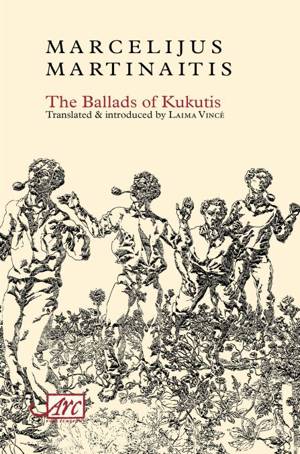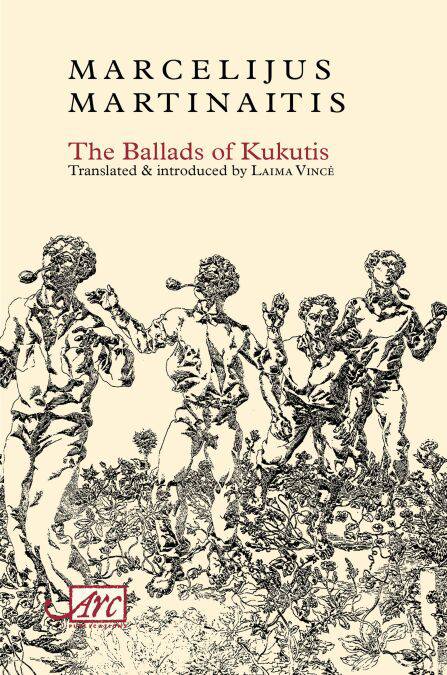
- Retrait gratuit dans votre magasin Club
- 7.000.000 titres dans notre catalogue
- Payer en toute sécurité
- Toujours un magasin près de chez vous
- Retrait gratuit dans votre magasin Club
- 7.000.000 titres dans notre catalogue
- Payer en toute sécurité
- Toujours un magasin près de chez vous
Description
Set in the Stalinist era, when Lithuaniaís farmers lost everything ñ their villages, their land, and even their way of life ñ to the process of collectivisation, this book documents the life of the village idiot/anarchistic trickster Kukutis. Incapable of understanding or following the laws and rules of the totalitarian regime, and knowing nothing of strictures or borders, he says and does what he likes, thus becoming a potent symbol of freedom until the downfall of communism in Lithuania. Together these poems form a black comic riposte to the horrors of occupation and totalitarian rule.
"It is of the essence of the trickster that he is playful and seems to be talking - whispering, acting - about something else, and that this something else has an innocence about it, a lack of central concern. No politics here! It worked, we are told; of the few books that got through the layers of official censorship, this one - or in its separate publications - did."
Stride
"To describe these poems as ballads is not to say they are written in regular verse or have recourse to narrative structures punctuated by refrains, but they nonetheless penetrated the consciousness of the people of Lithuania to the extent that they were chanted by crowds demonstrating as the Soviet grip on the country was released. Kukutis is clearly of those characters who escape from their creator and belong to all."
The Warwick Review
Marcelijus Martinaitis, author of fifteen collections of poetry and five collections of essays, was born in 1936 in western Lithuania. After an education disrupted by first Soviet then Nazi occupation, he graduated from Vilnius University and worked as a journalist, editor and university tutor until he retired in 2002. In 1998 he received the Lithuanian National Award in Literature, the highest honour bestowed upon a Lithuanian writer. During the late 80s and early 90s, he actively participated in Lithuaniaís struggle to regain its independence from the Soviet Union.
Laima Vince is a graduate in Creative Writing from Columbia University. Her other translations include Martinaitisís poetry collection K.B. The Suspect (2009).
This book is also available as an ebook: buy it from Amazon here.
"It is of the essence of the trickster that he is playful and seems to be talking - whispering, acting - about something else, and that this something else has an innocence about it, a lack of central concern. No politics here! It worked, we are told; of the few books that got through the layers of official censorship, this one - or in its separate publications - did."
Stride
"To describe these poems as ballads is not to say they are written in regular verse or have recourse to narrative structures punctuated by refrains, but they nonetheless penetrated the consciousness of the people of Lithuania to the extent that they were chanted by crowds demonstrating as the Soviet grip on the country was released. Kukutis is clearly of those characters who escape from their creator and belong to all."
The Warwick Review
Marcelijus Martinaitis, author of fifteen collections of poetry and five collections of essays, was born in 1936 in western Lithuania. After an education disrupted by first Soviet then Nazi occupation, he graduated from Vilnius University and worked as a journalist, editor and university tutor until he retired in 2002. In 1998 he received the Lithuanian National Award in Literature, the highest honour bestowed upon a Lithuanian writer. During the late 80s and early 90s, he actively participated in Lithuaniaís struggle to regain its independence from the Soviet Union.
Laima Vince is a graduate in Creative Writing from Columbia University. Her other translations include Martinaitisís poetry collection K.B. The Suspect (2009).
This book is also available as an ebook: buy it from Amazon here.
Spécifications
Parties prenantes
- Auteur(s) :
- Editeur:
Contenu
- Nombre de pages :
- 160
- Langue:
- Anglais
- Collection :
Caractéristiques
- EAN:
- 9781908376398
- Date de parution :
- 03-06-11
- Format:
- Ebook
- Protection digitale:
- /
- Format numérique:
- ePub







